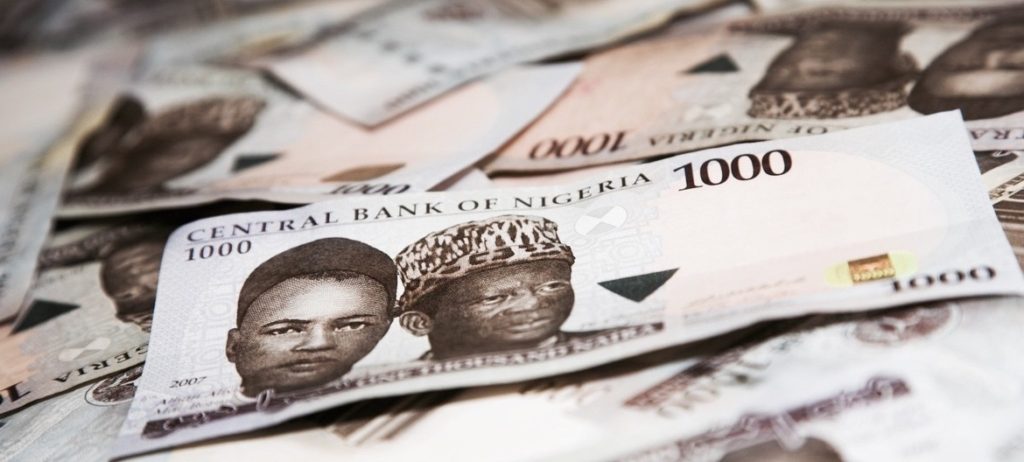The Nigerian naira tumbled to a fresh record low on Monday, taking its losses against the dollar to 55 per cent during the past month and sharpening the pressure on policymakers in Africa’s largest economy to raise interest rates.
Nigeria’s central bank finally gave in to market pressure in the middle of last month to scrap the naira’s 16-month old currency peg, prompting a devaluation designed to restore investor confidence and haul the economy out of recession.
The naira plummeted more than 40 per cent against the dollar on the first day of the new currency regime but quickly stabilised and hardly moved for three weeks, leading analysts to assume that the Central Bank of Nigeria was still keeping a tight grip on the currency and compromising its pledge to a free float.
However, any semblance of stability has evaporated in recent days, with the naira falling more than 8 per cent against the dollar last week. On Monday, the currency dropped a further 1.2 per cent to a new all-time low of 308.5 naira per dollar.
“Although the new system was described as a free float, it was very clear it wasn’t actually,” said John Ashbourne at Capital Economics. “Weakening the naira is a potentially painful but necessary step to fixing the economy. Policymakers must balance what’s economically necessary with what’s politically possible.”
Nigeria has been tipped into one of its worst economic crises in more than a decade by low oil prices, with the commodity accounting for more than 90 per cent of Nigeria’s foreign revenues. The effects have been compounded by a shortage of dollars.
During the first three weeks of the new currency system, when the naira held steady, the central bank was selling $35m-$60m worth of dollars a day, according to analysts at JPMorgan.
The renewed depreciation over the past week has come as the central bank has “stepped away from the foreign exchange market for the first time since adopting the floating exchange rate model,” according to Sonja Keller and Yvette Babb, strategists at JPMorgan.
“We expect the naira to continue to test new” record lows, they said, as the “central bank seeks to reduce its supply of foreign exchange to the market.”
Fresh weakness in the currency will focus further attention on the rate-setting meeting of the Central Bank of Nigeria, which faces a tough balancing act between quelling a rise in inflation expectations and supporting an ailing economy that contracted 0.4 per cent in the first quarter from a year ago.
Inflation leapt to 16.5 per cent in June, well above the bank’s target of 6 per cent to 9 per cent, and is widely expected to rise further in the wake of the currency devaluation as import prices surge.
JPMorgan predicts inflation to average 18 per cent in the second half of this year, and forecasts that the central bank will lift rates by 2 percentage points to 14 per cent on Tuesday.
On the other hand, John Ashbourne at Capital Economics forecasts inflation to hit 20 per cent within a few months, but predicts that the central bank will hold fire on rate rises until the autumn.
“If they do raise interest rates, it will be in the context of a very, very weak economy; indeed one which is almost certainly contracting. That is a difficult call to make,” he said.

